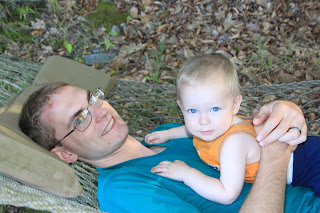Am I too busy?
Can I do anything about it?
I don't think I'm the only one asking myself these questions. Nor is this a recent trend for me. But they've been bouncing around my mind since my sociology class studied Max Weber this fall. He's the one who came up with the phrase "Protestant ethic" in the early 20th century, and writing a paper on the topic has gotten my wheels spinning.
Many, myself included, have beef with some of Weber's points. But other seem spot-on: namely, the tendency of those in historically Protestant nations to overvalue productivity. Weber asserted that being idle was one of the greatest sins in Protestant teachings of the 19th century: “Not leisure and enjoyment, but only activity serves to increase the glory of God […] Waste of time is thus the first and in principle the deadliest of sins” (The Protestant Ethic, p. 104). Weber says that as Protestants' religious fervor declined over time, their worship of hard work and busyness endured.
I don't know said Protestant teachings enough to judge whether this quotation is a fair summary. Too often, though, it describes my own attitude. I convince myself that God approves more of me when I get more done. I buy into American culture's view of busyness as a status symbol. I can find it hard to stop and focus on just one thing, especially if it's hard to quantify it or to say when I've "accomplished" it. (cough cough *prayer* cough cough)
In our Weber unit, my sociology professor had us read an article by Benjamin Snyder, "From Vigilance to Busyness: A Neo-Weberian Approach to Clock Time." Vigilance started with Benedictine monks and involves a regular schedule of activities like contemplation or singing. Busyness came about through Protestant and Renaissance cultures. It emphasizes not just regularity but density - packing more varied activities into a given time period. The article argues that "although we often think of busyness, time pressure, and burnout as contemporary problems, they have long been at the root of clock time culture." Snyder points out that even the word "busy" evolved in meaning around 1500, from “‘concentrating on a particular activity’” to “‘constantly occupied with many things.’”
Time density has its limits. No matter how much we try to cram in, an hour can only hold so much. Believe me, I've tried. Despite the illusion that multi-tasking helps us accomplish more and “get ahead,” psychologists say that reality falls short of expectations:
Managing this constant and mounting demand often involves switching tasks or multi-tasking, and the job never quite feels done. "Multi-tasking is what makes us pressed for time," says Elizabeth Dunn, a psychology professor at the University of British Columbia in Vancouver,Canada. “No matter what people are doing, people feel better when they are focused on that activity,” she adds.
In my own life, here's what I'm realizing. I am busy. Not just this year... not just this chapter... but since probably 8th grade, I've had a pretty full schedule. Why?
1. Because right now I can. I have a fairly high energy level and good health, and I enjoy being active. I've been given opportunities to do a lot of things that I like and find meaningful. Those things are temporary blessings not to be taken lightly. They are not reasons to judge others, nor are they reasons to beat myself up if those ever change. Being less busy - like when I had chronic fatigue or during Cambodia's hot season - doesn't make me less myself. Busyness does not define me. But being busy is not always a bad thing.
2. Because I undervalue margin. I don't leave enough room for the unexpected because I don't like missing out on neat opportunities. I once described a dear friend by saying, "She wouldn't want to bite off LESS than she could chew." Takes one to know one! That friend seems to be learning faster than I am that this approach to life doesn't really pay off. For one, it makes it hard to switch midstream when things come up. For another, when I stop to catch my breath (like over Christmas break), often there's a reckoning to pay in the form of a heart out of whack. I need margin, both to take care of myself, and to be available for others' unforeseen needs.
3. Because I'm addicted. I feel good when I get stuff done. When my papers are turned in, when I've made dinner for once, when I'm caught up on e-mail... let's be honest, when I've published a blog post... I want to do a happy dance. Recently, I've been quite busy and also quite happy, and it's because my efforts have generally been fruitful. But there's a danger here. If I tie my happiness to my accomplishments, then I feel a lot of fear, anger, or even depression when my success is jeopardized. I may refuse to take risks. I may get caught in the spin cycle of the comparison game. And quite frequently, I prioritize the task that's easily checked off over the one that's not. I think checking e-mail will just take a few minutes, and I end up late to meet a friend. Or I try to hem pants while watching a movie, only to realize it distracted me and spoiled my enjoyment of the movie. Or I get impatient with people who interrupt my day: "This wasn't on my mental agenda." Short term, being task-oriented feels like I'm winning at life. Long term, that's not who I want to be.
 |
| https://www.flickr.com/photos/kevlar/2632549720 |
4. Because I've hunkered down in a flimsy straw house. My friend Annalisa once led a devotion for Logos staff that talked about the three little pigs. All three thought their houses would guard them from the big bad wolf, but only one house withstood the gales. Sometimes I sense that I need to stop trying, and I just refuse. "If I just stay up one more hour, I'll be able to sort all this out and be ready for tomorrow. Then I can relax." I think the task at hand will be more beneficial than sleep or time with God. Invariably, the next day I don't even need whatever it was that seemed so crucial... but I suffer for what I sacrificed. Jesus Christ is the only secure refuge. I need to change my statements from "I can start resting WHEN I get xyz done" to " I can start resting now BECAUSE of what Christ has done for me." His death and resurrection have secured my reputation and my future. Annalisa pointed out, "A 'well-earned rest' is backward thinking! We begin with Christ's finished work. We start by resting." I need to drop the fragments of straw I've been holding up to shield me, and hoof it to the sturdy brick walls down the lane.
5. Because I think it's my job. Another line Annalisa shared with us: "Christianity is like a day off, not like a day at the office." Imagine the difference, she said, between needing to sand and repaint your house's walls - and being invited to help your best friend do the same for a few hours one Saturday. When I work myself into a frenzy trying to help everyone or do my best at what I believe God has asked of me, I've forgotten the truth that this is God's work. He invites me to join Him - not because He needs my help, but because He loves me and delights in spending time with me. Unlike me, He's never dismayed or stressed out by my limitations. I don't have to join Him - I get to.
So I'm slowly moving beyond seeking to straddle the magical line between "busy enough" and "too busy." (Michael Hyatt points out that tightropes are always wobbly and balancing is more active than static anyway.) Maybe "Am I too busy?" is the wrong question. Instead, I need to ask...
How's my margin?
Should this task be my priority?
Where am I taking refuge?
Whose job is this anyway?
Sometimes I have more control of my schedule than others. Most times, I have more wiggle room than I think. But I *always* have the choice to embrace the right attitudes about how and why I fill... or empty... my time. And though these attitudes go against my grain, I have a God who very patiently and lovingly points me back to the truth: that a "Protestant work ethic" brings Him glory only when I abandon my fear and pride to take refuge in Him.

































